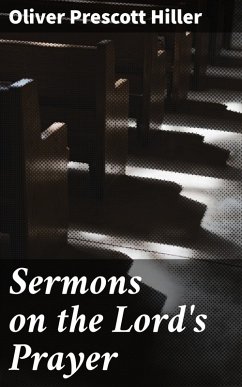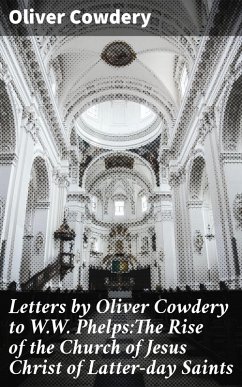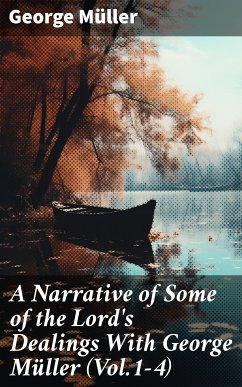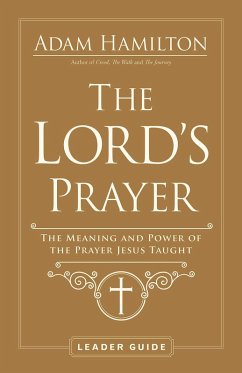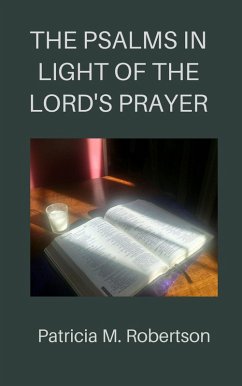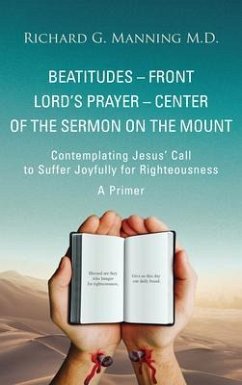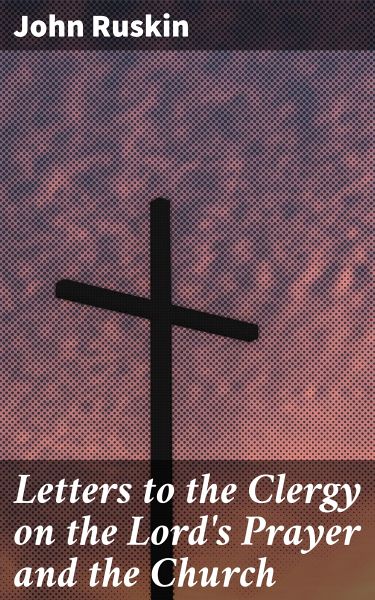
Letters to the Clergy on the Lord's Prayer and the Church (eBook, ePUB)
Enriched edition. Exploring Faith and Ethics in Victorian Society
Kommentar: Whitmore, Gwendolyn / Redaktion: Good Press; Malleson, F. A.
Versandkostenfrei!
Sofort per Download lieferbar
0,49 €
inkl. MwSt.
Weitere Ausgaben:

PAYBACK Punkte
0 °P sammeln!
In "Letters to the Clergy on the Lord's Prayer and the Church," John Ruskin presents a profound exploration of spirituality, morality, and the interrelation between faith and practice. Written in a clear yet eloquent style, this collection of letters emerges from Ruskin's deep concern for the ethical implications of religious service during the Victorian era. His argument is interlaced with artful prose and philosophical insights, making it as much a work of literary art as a theological treatise. Engaging both the heart and intellect, Ruskin encourages clergy to re-examine their roles in embo...
In "Letters to the Clergy on the Lord's Prayer and the Church," John Ruskin presents a profound exploration of spirituality, morality, and the interrelation between faith and practice. Written in a clear yet eloquent style, this collection of letters emerges from Ruskin's deep concern for the ethical implications of religious service during the Victorian era. His argument is interlaced with artful prose and philosophical insights, making it as much a work of literary art as a theological treatise. Engaging both the heart and intellect, Ruskin encourages clergy to re-examine their roles in embodying the teachings of the Lord's Prayer within the broader context of the Church's mission. John Ruskin, a renowned art critic and social thinker, was shaped by his experiences with the Industrial Revolution and its moral dilemmas. His passion for combining the aesthetic with the ethical drove him to illuminate the spiritual responsibilities of religious leaders. Ruskin's writings reflect his unwavering belief in the transformative power of art and faith, positing that genuine spirituality must be expressed through action and community engagement. This book is an essential read for anyone interested in the intersections of faith, ethics, and social justice. Ruskin's letters not only provoke thoughtful reflection on one's spiritual journey but also offer practical insights for contemporary clergy and laypeople alike. Dive into this seminal work and discover the timeless relevance of Ruskin's call to a more engaged and compassionate faith. In this enriched edition, we have carefully created added value for your reading experience: - A comprehensive Introduction outlines these selected works' unifying features, themes, or stylistic evolutions. - The Author Biography highlights personal milestones and literary influences that shape the entire body of writing. - A Historical Context section situates the works in their broader era-social currents, cultural trends, and key events that underpin their creation. - A concise Synopsis (Selection) offers an accessible overview of the included texts, helping readers navigate plotlines and main ideas without revealing critical twists. - A unified Analysis examines recurring motifs and stylistic hallmarks across the collection, tying the stories together while spotlighting the different work's strengths. - Reflection questions inspire deeper contemplation of the author's overarching message, inviting readers to draw connections among different texts and relate them to modern contexts. - Lastly, our hand-picked Memorable Quotes distill pivotal lines and turning points, serving as touchstones for the collection's central themes.
Dieser Download kann aus rechtlichen Gründen nur mit Rechnungsadresse in A, B, BG, CY, CZ, D, DK, EW, E, FIN, F, GR, H, IRL, I, LT, L, LR, M, NL, PL, P, R, S, SLO, SK ausgeliefert werden.





